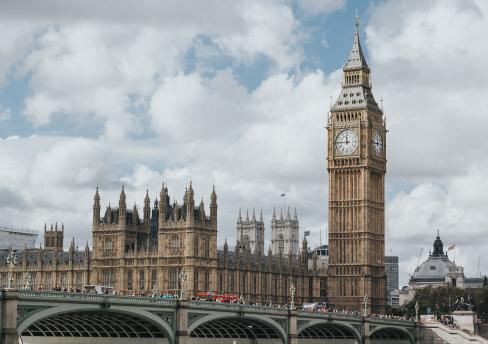The Supreme Court has recently issued its decision in the appeal in the matter of Kennedy v Cordia (Services) LLP which discusses the requirements of employers to carry out risk assessments and provide their employees with personal protective equipment (PPE). The case provides a useful discussion of legislative requirements under the Personal Protective Equipment at Work Regulations 1992 (the 1992 Regulations) and the Management of Health and Safety at Work Regulations 1999 (the 1999 Regulations) as well as common law liabilities.
Facts of the case
Miss Kennedy was working as a carer which involved her visiting individuals in their homes and providing them with personal care. On 18 December 2010 she and went to the home of a terminally ill person in order to provide personal care. The weather was freezing and snow was falling as Mrs Kennedy and a colleague walked to the individual's home after parking their car. As she was walking down a snow covered path (which had not been gritted or salted), Mrs Kennedy lost her footing, fell and injured her wrist. She subsequently raised an action against her employers for losses as a result of her injury.
Stage 1 - The initial decision
When the case was first heard in the Court of Session, the judge (the Lord Ordinary) held that Cordia was liable to make reparation to Miss Kennedy because they were in breach of their duties to her. He considered that Cordia has failed to carry out a proper risk assessment, as required under the 1999 Regulations. He also found that they were in breach of their duty under the 1992 Regulations and common law because Cordia had failed to give Miss Kennedy attachments (described as "add-ons") to her footwear to give her better grip in icy or snowy conditions or instruct her how to use these and ensure that she used them. When she fell she had been wearing her own boots, with no attachments to provide traction.
Cordia appealed this decision.
Stage 2 - Cordia's success on appeal
Cordia was successful in their initial appeal (which went to the Inner House).
The Inner House thought that it was incorrect that an employer should be liable under the 1999 Regulations for injuries suffered by an employee because these regulations only required that a risk assessment be carried out and did not actually require the taking of any safety precautions.
With regard to the requirement to provide PPE under the 1992 Regulations, they though that this applied to risks which a worker is exposed to specifically from their work, ie, caused by the nature of their work. The risk in this case (walking on icy pavements) was not materially different to that which any member of the public was exposed. Because the risk did not specifically arising from Miss Kennedy's work the 1992 Regulations did not apply.
They sought to adopt a pragmatic approach when considering an employer's liability to provide PPE to deal with icy weather. They commented that, if a duty of the type envisaged by the initial judge were to exist, it would require employers to monitor the weather with a view to determining what footwear would be most suitable and then ensure that it was worn by employees who would be likely to be scattered throughout the city. How this could practically be done was by no means obvious.
The Inner House also did not think that Cordia was in breach of any common law duty to Miss Kennedy because it had not been shown that they had failed to do something that was either commonly done or so obvious that it would be folly to neglect it. They thought it was relevant that Miss Kennedy had been given training which included a discussion on coping with icy weather and also that it could not be said, on the basis of the evidence given, that wearing the attachments would have made any real difference to Miss Kennedy's injury.
Miss Kennedy appealed this decision to the Supreme Court.
Stage 3 - The Supreme Court's decision
The Supreme Court did not agree with the Inner House and Miss Kennedy's appeal was successful.
The Supreme Court looked first at the requirements in relation to risk assessment. In this case there was an obvious risk of an employee slipping and falling on snow and ice, This was known both as a matter of common sense and also because of Cordia's knowledge of accidents in previous years. The nature of Miss Kennedy's work, meant that she and colleagues had to work in winter weather and be exposed to this risk. The risk therefore had to be evaluated in the prescribed way (which was set out in schedule 1 of the Regulations). The Supreme Court was satisfied that no thought had been given to the possibility of individual protective measures before instructions regarding taking care in winter weather were given to employees. Accordingly the Lord Ordinary (in his initial decision) was entitled to find that there had been a breach of the Regulations in relation to risk assessments.
The Supreme Court also disagreed with the approach of the Inner House in relation to the provision of PPE under The 1992 Regulations. They did not agree that these regulations focused on risks caused by an employee's work. The regulations applied when an employee was exposed to the risk whilst at work but it was not necessary that their work must be the cause of the risk. Accordingly, because the initial decision had found that anti slip attachments were available which would have reduced the risk of home carers slipping or falling and because this risk (of slipping or falling) was not adequately controlled by other means which were either equally or more effective, the Lord Ordinary was entitled to find that there had been a breach of the 1992 Regulations.
Interestingly, the Supreme Court was also not persuaded by the view of the Inner House that the imposition a requirement to provide anti slip attachments would cause difficulties for employers as they would not be able to directly supervise employees to ensure that they were appropriately used. Instead they considered that it would be sufficient for employers to give their employees adequate training in relation to the use of this equipment.
As regards common law, they were of the opinion that the appellant should not be viewed as an ordinary member of the public because she had to visit individuals in their homes in hazardous conditions regardless of whether the roads and footpaths had been treated. In circumstances where Cordia were aware of a history of accidents with potentially serious consequences, they should have inquired into possible means of reducing the risk. Had they done so they would have discovered the availability of attachments at a modest cost which had been found effective at reducing risks. Therefore the Supreme Court was persuaded that, in the circumstances, Cordia had been negligent.
Comments - what are the implications of the decision?
At first glance, the judgement of the Supreme Court does appear to impose a high bar for employers in relation to their responsibilities for the provision of PPE. Whilst a breach of these regulations will not automatically result in an employer being civilly liable to the employee, it is clear that employees who fail to carry out adequate risk assessment or provide necessary PPE can be liable at common law.
One point which employers can take from this decision is the importance of carrying out an adequate risk assessment. As well as considering the potential risks (and risks which they should be aware of because of to previous accidents) they should make sure that they fully consider any practical measures which might be available to mitigate risks.
In addition, in situations where employers require to provide PPE but are not able to immediately supervise employees of their use of the PPE, they should ensure that adequate training is given to make employees aware of how to properly use the PPE and the circumstances in which they should be doing so.
If you have any questions about potential claims for employer's liability in relation to risk assessments or PPE please contact Jenny Dickson .
The content of this webpage is for information only and is not intended to be construed as legal advice and should not be treated as a substitute for specific advice. Morton Fraser LLP accepts no responsibility for the content of any third party website to which this webpage refers. Morton Fraser LLP is authorised and regulated by the Financial Conduct Authority.










